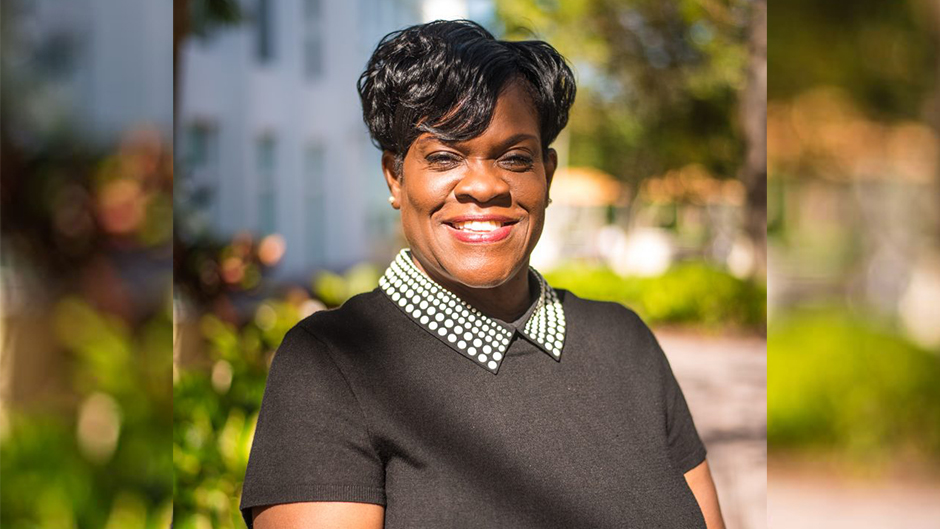As scholar in residence for schools, communities, and diversity, Dr. Gigi Gilbert has a wide mandate at the School of Education and Human Development. A veteran South Florida teacher and administrator with 35 years of experience, Gilbert serves as a liaison with Miami-Dade County Public Schools, facilitating field placements, professional development programs, and other activities.
“Our partnership with Miami-Dade schools is very important as we prepare students to become effective teachers,” said Gilbert. “To take just one example, our student teachers need to understand the varied social, emotional, and cultural background of the children in their classrooms. We have a highly diverse population here, and new teachers need to be well prepared to survive and thrive in very different school settings.”
Gilbert joined SEHD in August 2018 at the invitation of Dean Laura Kohn-Wood. The two met at Sunset Elementary, one of the SEHD professional development schools, where Gilbert was assistant principal and Kohn-Wood’s son Liam was a student. “We developed a close friendship, and Dr. Kohn-Wood asked Gilbert to join the school on a part-time basis after my retirement,” Gilbert said. “It’s a great fit for me and the school.”
Gilbert, who holds a doctor of education in organizational leadership from Nova Southeastern University, has more than three decades of experience as a principal, assistant principal, and instructor at Miami-Dade public schools.
Leading SEHD initiatives
Drawing on her in-depth understanding of the racial, cultural and social issues that impact Miami-Dade students, teachers, and administrators, Gilbert is leading several important SEHD initiatives. “We need to take a closer look at ourselves and our practices in order to continue building a culture of diversity and inclusion,” she said.
For instance, Gilbert is leading the school’s Task Force for Best Practices for Race, Ethnicity and Culture. One issue being discussed this spring is development of a protocol to address racial or ethnic incidents that might occur in a variety of settings. “Our task force is working on a list of steps to handle a problem, if one occurs,” she said. “We believe that clear and timely communication is essential, whether an incident involves a student, parent, faculty member, or staff.”
Because it can be difficult for any academic institution to “hold up a mirror” and get an accurate picture, Gilbert is working with a group involving the University of Miami’s Office of Institutional Culture, to create a faculty and staff Intergroup Dialogue Program for the School of Education, which is a social justice pedagogy from the University of Michigan. “The program will be introduced at our school-wide faculty and staff spring meeting,” she said. “A small group of faculty and staff will plan and prepare over the summer to start in the fall. We will start with the “Race” dialogue.”
Gilbert is also organizing a training program on restorative justice for faculty and staff. An alternative to traditional student discipline for actions like bullying or picking fights, restorative justice focuses on making amends for such behavior and examining the root causes for those actions. “Restorative justice also focuses on preventing negative behaviors,” said Gilbert. “Our goal with the training will be to create a more inclusive culture of belonging and respect for all.”
Gigi Gilbert

